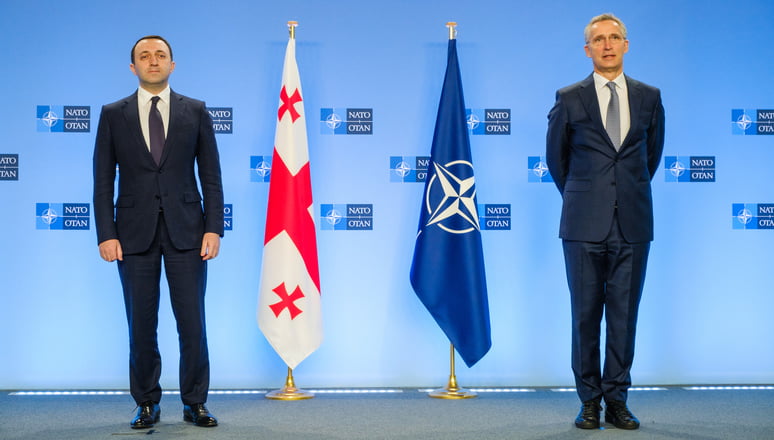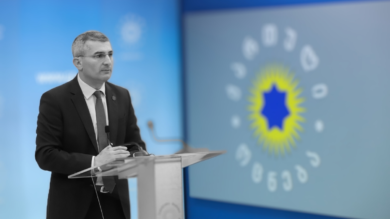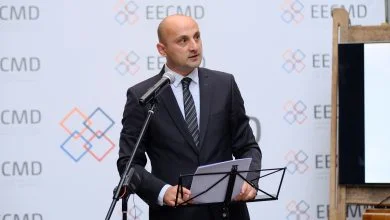Giorgi Kandelaki is a former MP and member of European Georgia
There is a prevalent view amongst Georgia’s supporters that – perhaps not as intensely as during the previous government – Georgia is still doing its best to progress towards NATO membership, and that the position of Germany remains the main stumbling block on this path. This is no longer true.
Georgia has effectively abandoned its efforts to advance on the membership issue. True, the work on cooperation and various partnership packages, in itself important, continues. But the membership issue itself has been put on the back burner.
For years, NATO summits, just like the most recent one in Brussels, come and go without Georgia engaging in any sort of high-level, coordinated lobbying with its supporters and the United States to make even tiny progress on the way to membership.
Convincing Germany to put Georgia on the path to membership in the alliance is indeed a complicated task. But it is less daunting now than it was back in 2014 when Russia was still overwhelmingly viewed as a partner, albeit a difficult one. That paradigm changed with the invasion of Ukraine and as Vladimir Putin’s obsession with reversal of the Cold War outcome became hard to deny.
Despite this increased geopolitical awareness in Berlin, years have passed with Georgia not undertaking active diplomacy and a joint effort with its supporters to engage skeptics at all levels, especially the highest one. You don’t move on NATO membership just by saying you are pro-NATO at a third-rate conference.
The truth is that the deafening absence of any serious lobbying is a policy decision was made personally by Bidzina Ivanishvili — who remains the Georgian Government’s patron. And nobody in the Government can deviate from his decision.
So while the talking points of Georgian officials at meetings or conferences remain soundly pro-NATO, these talking points and policy are two different things.
On the policy level, Mr. Ivanishvili has increasingly pursued a “multi-vector” foreign policy akin to that of the former Ukraine President Victor Yanukovich, thus allowing Russia to gradually but steadily increase its leverage inside Georgia.
The same policy implies backing off from any efforts to inject the issue of Russian occupation to top level western-Russian agenda. It is no surprise then, that Georgia was not mentioned at yesterday’s Biden-Putin Summit in Geneva.
Georgia also refuses to team up with Ukraine on the international arena. No prime minister of Georgia has even once visited Kyiv in bilateral format for the past 9 years. Georgia has defied calls both at home and amongst its friends to work together with Ukraine and to package Russia’s conduct on and around Georgia’s occupied territories into western sanctions imposed because of the Russian actions in Ukraine.
The de facto abandonment of NATO membership policy by Georgia is a major development that Georgia’s supporters must reflect on. Giving Ivanishvili a pass on democracy will only encourage this trend – with potential outcomes contrary to interests of both Georgia and the alliance.




